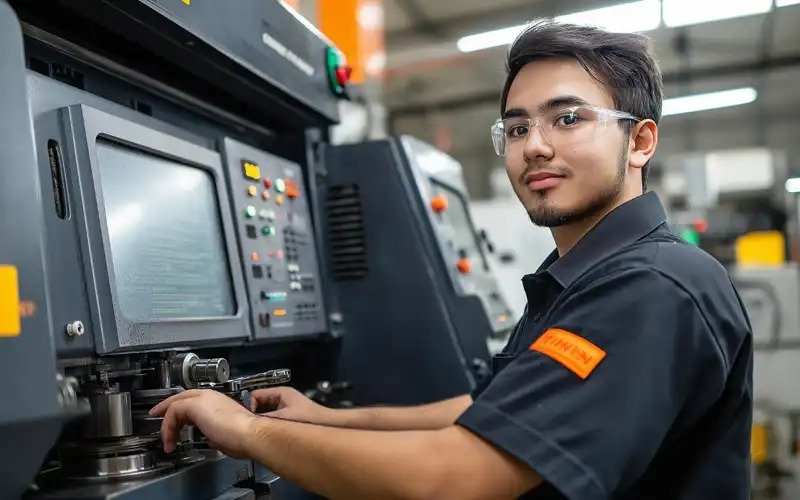Australia’s growing economy and skill shortage in construction, mining, and manufacturing offer migrants a golden chance to build stable, high-paying careers.
Mangalath Immigration Tweet
Australia’s economy continues to expand across construction, mining, and advanced manufacturing, creating a critical shortage of skilled tradespeople. For migrants, this represents a golden opportunity to secure stable, well-paying jobs while contributing to industries that are the backbone of the nation’s growth.
Why Trades Are in Demand
- Infrastructure Boom: Major transport, energy, and housing projects are underway across states.
- Mining & Resources: Ongoing demand for skilled workers in Western Australia and Queensland.
- Aging Workforce: Many experienced tradespeople are retiring, leaving gaps in the labor market.
- Advanced Manufacturing: Growth in aerospace, defense, and renewable energy requires precision trades.
Spotlight on Metal Machinists & Fitters
Metal Machinists
- Role: Operate machine tools to shape and fabricate metal parts with high precision.
- Industries: Aerospace, automotive, mining equipment, shipbuilding, and defense.
- Demand Drivers:
- Expansion of defense manufacturing (submarines, naval ships).
- Mining machinery maintenance and fabrication.
- Growth in renewable energy equipment manufacturing.
Fitters (General, Mechanical, and Fitter-Welders)
- Role: Assemble, maintain, and repair machinery and heavy equipment.
- Industries: Mining, oil & gas, construction, and utilities.
- Demand Drivers:
- Mining operations in WA and QLD.
- Infrastructure projects requiring heavy machinery.
- Shortage of skilled maintenance workers in regional areas.
Both occupations are listed on Australia’s Occupation Shortage List (2025), making them highly favorable for skilled migration pathways.
Other High-Demand Trades in 2025
- Electricians
- Welders & Fabricators
- Plumbers
- Carpenters & Joiners
- Heavy Diesel Mechanics
- Air-conditioning & Refrigeration Technicians
Migration Pathways for Skilled Trades
- Skilled Independent Visa (Subclass 189) – Permanent residency without employer sponsorship.
- Skilled Nominated Visa (Subclass 190) – State/territory nomination required.
- Skilled Work Regional Visa (Subclass 491) – For regional areas with high demand.
- Employer-Sponsored Visas (Subclass 482, 186) – Direct job offers from Australian employers.
Frequently Asked Questions (FAQ)
Yes. Both are on the shortage lists, making them eligible for skilled visas under ANZSCO classifications.
Generally, a trade certificate or diploma in mechanical/metal trades plus several years of work experience. Recognition of Prior Learning (RPL) may be required.
Yes. IELTS, PTE, or equivalent test scores are mandatory for skilled migration.
- Metal Machinists: AUD 70,000 – 95,000 annually.
- Fitters: AUD 75,000 – 100,000 annually (higher in mining regions).
Yes. Regional Australia faces acute shortages, especially in mining and heavy industry hubs. Migrants willing to relocate often have faster visa processing and better job prospects.
Why Mangalath Immigration?
For skilled tradespeople—especially metal machinists and fitters—Australia offers not just jobs, but long-term career growth and pathways to permanent residency. With the right qualifications and migration guidance, this is the perfect time to seize the opportunity.
At Mangalath Immigration, we specialize in helping skilled workers navigate the migration process with clarity and confidence.

